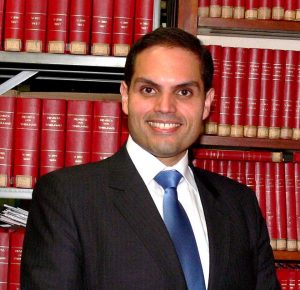We are pleased to announce our next WALTA meeting is to be held at 6:00pm on the 18th of June 2018 at Sheridan College – Suite 17/7 Aberdeen Street, Perth.
Our special guest for the evening will be Brazillian professor Dr Antonio Jorge Pereira Jr.
Professor Periera holds a Bachelor of Laws, a Master of Laws, and a Doctorate of Laws at the University of Sao Paulo (USP). He is Professor at the Post-Graduate Program in Constitutional Law at the University of Fortaleza (UNIFOR). Professor Pereira Jr is also an active member of the Paulista Academy of Juridical Letters (APLJ), a member of the International Academy for the Study of the Jurisprudence of the Family (IASJF), a member of the Ibero-American Academy of Family Law, and a member of the Constitutional Law Commission at the Brazilian Bar Association – Ceara chapter. His main areas of research include Contract Law, Constitutional Law, Children’s Rights, Family Law and Legal Ethics. His book ‘Direitos da Criança e do Adolescente em face da TV’ (Children and Adolescent’s Rights in Face of Television) (Saraiva, 2011) is published by a prestigious publishing house and it has won a very significant award for outstanding legal writing, in 2012 – Prêmio Jabuti 2012.

His topic will be: Judicial Activism and Family Law in Brazil: How Unelected Judges Have Redesigned the Brazilian Family Law System
Below is an abstract of his presentation:
The Brazilian legal system is based on the civil law system which is most typical of continental European countries. Accordingly, there is no strong tradition of stare decisis and legislation should guide and orient all the decisions of these courts. In Brazil, the country’s Federal Supreme Court is responsible, among other functions, for reviewing the constitutionality of legislation enacted by the federal parliament. As a result of three controversial decisions, the court has declared the constitutional invalidity of family law provisions that had been applied for several decades in the country. This has substantially altered the very nature of the Family Law System in Brazil. These are extraordinary decisions which go much beyond the scope of the judicial power as authorised by the written constitution. Indeed, such decisions are deliberations more properly characterised as legislative exercise of powers and so to be exercised by the elected Parliament. One such a decision resulted in the broadening of constitutional definitions of marriage, thus extending the marriage status to same-sex couples. A second decision went on to modify the recognition of paternity status by allowing so-called ‘multi-paternity’, that is, the recognition of multiple parents for one single child. Finally, a third decision has conferred to every civil union the same status of marriage on matters pertaining succession law. These are deeply controversial decisions which have completely ignored democratic processes as well as the doctrine of separation of powers established in the Brazilian Constitution. Furthermore, such decisions have deeply impacted not only the institution of marriage in the country, but also issues of paternity and the nature of succession laws. What is the rationale behind all these controversial rulings? Is the Supreme Court constitutionally authorised to make such decisions? What can the concerned citizens do about this? What can the country’s elected parliamentarians do about such an apparent usurpation of their own legislative powers?
We look forward to your attendance.